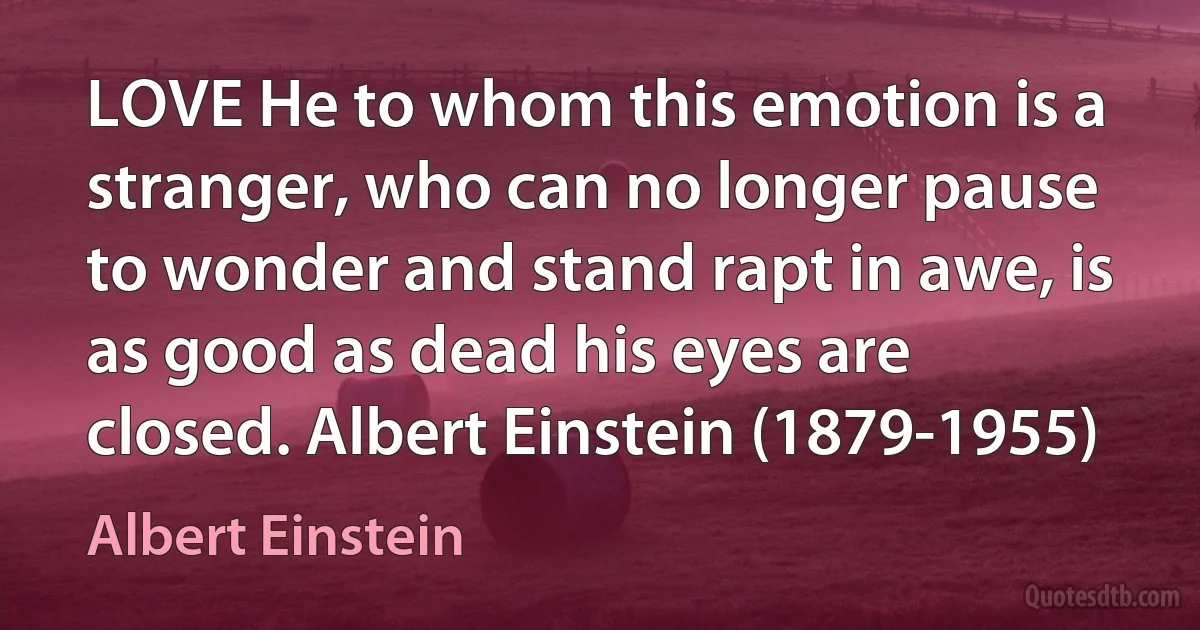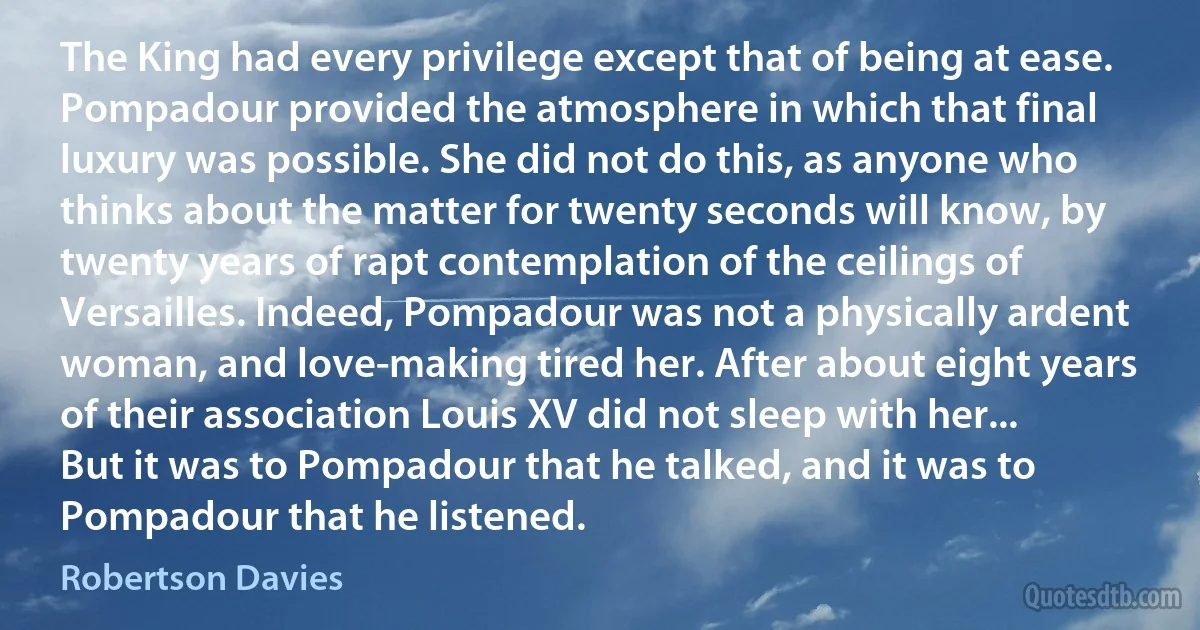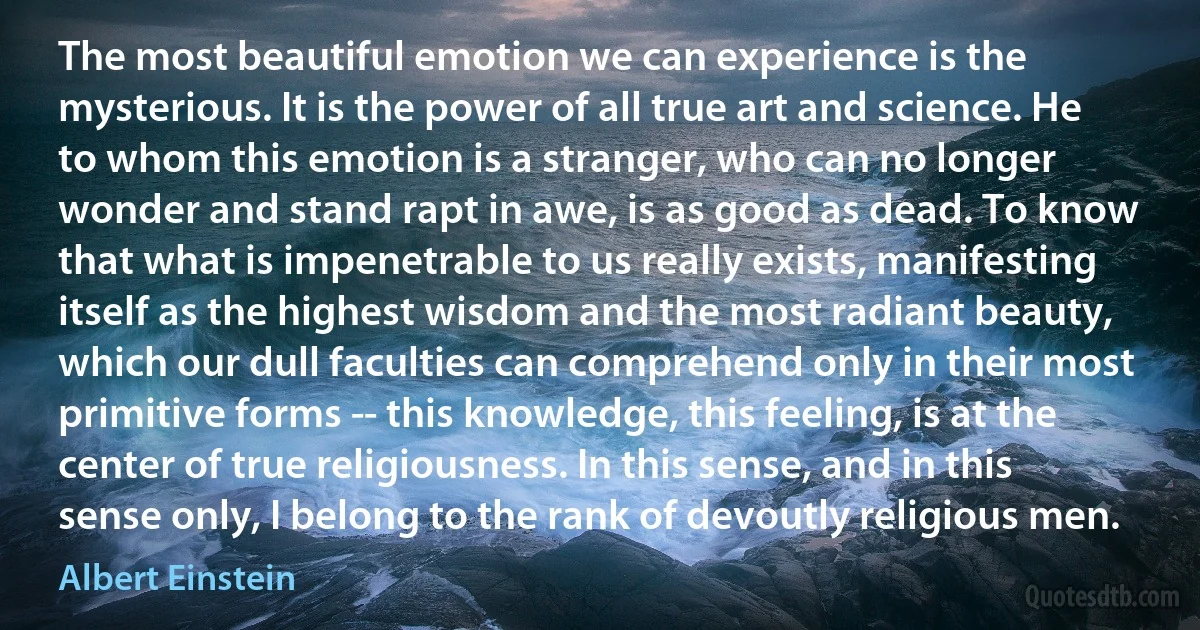Rapt Quotes
Myriads of individuals, each one unique, live out their lives in rapt intercourse with one another, contribute their heart's pulses to the universal music, and presently vanish, giving place to others. All this age-long sequence of private living, which is the actual tissue of humanity's flesh, I cannot describe. I can only trace, as it were, the disembodied form of its growth.

Olaf Stapledon
Charismatic Lithuanian baritone Vytautas Juozapaitis was a spirited, energetic Don Giovanni who held the audience's rapt attention whenever he was on stage. He had an authoritative sound that could be romantically enticing in an attempt to seduce a lady, but could change instantly into a commanding tone when anyone attempted to thwart his will.

Vytautas Juozapaitis
Demiurgus [said my father] was enamoured of refined, perfect, and sophisticated materials. We give precedence to junk. We are simply rapt by it, entranced by the cheapness, the paltriness, the tawdriness of the material. Do you understand,” my father asked, "the profound meaning of that weakness, that passion for gaudy tissue-paper, papier-mâ ché, coloured lacquer, straw, and sawdust? It is,” he said with a pained smile, "our love for matter as such, for its downiness and porousness, its unique, mystical consistency. Demiurgus, that renowned master and artist, hides it away, causes it to vanish behind life's make-believe. We, to the contrary, love its abrasiveness, its unruliness, its rag doll ungainliness. Behind each gesture, each movement, we like to see its exertion, its torpor, its sweet ursinality.

Bruno Schulz
In anything fit to be called by the name of reading, the process itself should be absorbing and voluptuous; we should gloat over a book, be rapt clean out of ourselves, and rise from the perusal, our mind filled with the busiest, kaleidoscopic dance of images, incapable of sleep or of continuous thought. The words, if the book be eloquent, should run thenceforward in our ears like the noise of breakers, and the story, if it be a story, repeat itself in a thousand coloured pictures to the eye.

Robert Louis Stevenson
All old Poems, Homer's and the rest, are authentically Songs. I would say, in strictness, that all right Poems are; that whatsoever is not sung is properly no Poem, but a piece of Prose cramped into jingling lines,-to the great injury of the grammar, to the great grief of the reader, for most part! What we wants to get at is the thought the man had, if he had any: why should he twist it into jingle, if he could speak it out plainly? It is only when the heart of him is rapt into true passion of melody, and the very tones of him, according to Coleridge's remark, become musical by the greatness, depth and music of his thoughts, that we can give him right to rhyme and sing; that we call him a Poet, and listen to him as the Heroic of Speakers,-whose speech is Song.

Thomas Carlyle
People marvel at ... things only because they rarely happen; but the causes for these are as apparent as for others ... For example, at night a fearful man who sees a wolf in the fields, or a cat in his room, will immediately assert and judge that it is an enemy or a devil ... because he fixes his imagination on these and fears them. And a person devout and rapt [in ecstasy] will judge that it is an angel ... A vigorous imagining of a retained species, then, together with a small external appearance or with an imbalance of some internal disposition ... produces marvelous appearances in healthy as well as in sick people.

Nicole Oresme
At the Everyman Cinema there is a season of Satyajit Ray. He watches the Apu trilogy on successive nights in a state of rapt absorption. In Apu's bitter, trapped mother, his engaging, feckless father he recognizes, with a pang of guilt, his own parents. But it is the music above all that grips him, dizzyingly complex interplays between drums and stringed instruments, long arias on the flute whose scale or mode - he does not know enough about music theory to be sure which - catches at his heart, sending him into a mood of sensual melancholy that last long after the film has ended.

J. M. Coetzee
For that (the rapt one warns) is what papyr is meed of, made of, hides and hints and misses in prints. Till ye finally (though not yet endlike) meet with the acquaintance of Mister Typus, Mistress Tope and all the little typtopies. Filstup. So you need hardly spell me how every word will be bound over to carry three score and ten toptypsical readings throughout the book of Doublends Jined (may his forehead be darkened with mud who would sunder!) till Daleth, mahomahouma, who oped it closeth thereof the. Dor. (20.10-18)

James Joyce
Their fear deepened with the night as they beheld the face of the heavens turning and the mountains and all places rapt from view and all around thick darkness. The very stillness of Nature, the silent constellations in the heavens, the firmament starred with streaming meteors filled them with fear. And as a traveller by night overtaken in some unknown spot upon the road keeps ear and eye alert, while the darkening landscape to left and right and trees looming up with shadows strangely huge do but make heavier the terrors of night, even so the heroes quailed.

Gaius Valerius Flaccus
Mind and its contents are functionally identical: My wife only exists, for me, in my mind. Not being a solipsist, I recognize the converse: I only exist, for her, in her mind. Lest the reader exclaim, like Byron of Wordworth, "I wish he would explain his explanation!", let us try it this way: If I am so fortunate as to be listening to the Hammerklavier sonata, the only correct answer, if you ask me suddenly, "Who are you?" would be to hum the Hammerklavier. For, with music of that quality, one is hypnotized into rapt attention: there is no division between "me" and "my experience".

Robert Anton Wilson
The question is not merely what we can feel, but what we can do for Christ; not how many tears we can shed, but how many sins we can mortify; not what raptures we can experience, but what self-denial we can practice; not what happy frames we can enjoy, but what holy duties we can perform; not simply how much we can luxuriate at sermon or at sacrament, but how much we can exhibit of the mind of Jesus in our intercourse with our fellow men; not only how far above earth we can rise to the bliss of heaven, but how much of the love and purity of heaven we can bring down to earth; in short, not how much of rapt feeling we can indulge, but how much of religious principle we can bring to bear on our whole conduct.

John Angell James



